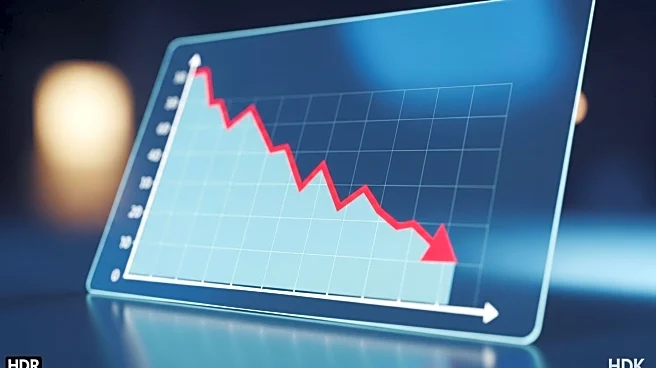What's Happening?
The Institute for Supply Management (ISM) released its Manufacturing PMI report for August 2025, showing a PMI of 48.7%, a slight increase from July's 48%. This marks the sixth consecutive month of contraction in the manufacturing sector, following a brief two-month expansion. The New Orders Index showed growth at 51.4%, up from 47.1% in July, while the Production Index fell to 47.8% from 51.4%. The Prices Index remained in expansion territory at 63.7%, though slightly down from July's 64.8%. The report highlights ongoing challenges in the sector, including tariffs and supply chain issues, impacting production and employment.
Why It's Important?
The continued contraction in the manufacturing sector is significant as it reflects broader economic challenges, including tariff impacts and supply chain disruptions. The PMI is a key indicator of economic health, and its contraction suggests potential slowdowns in related industries and overall economic growth. The increase in new orders is a positive sign, but the simultaneous contraction in production and employment indicates ongoing struggles. Industries such as Food, Beverage & Tobacco Products and Petroleum & Coal Products showed growth, but many others, including Transportation Equipment and Machinery, continue to face difficulties.
What's Next?
The ISM report suggests that manufacturing may continue to face challenges due to tariffs and economic uncertainty. Companies are likely to focus on managing headcounts and costs, with potential impacts on employment and production levels. The report indicates that future production may benefit from low customer inventory levels, but ongoing tariff issues could hinder recovery. Stakeholders, including policymakers and industry leaders, may need to address these challenges to support manufacturing growth.
Beyond the Headlines
The report highlights the broader implications of tariff policies and economic uncertainty on manufacturing. The contraction in the sector could lead to shifts in global supply chains and impact U.S. competitiveness. The focus on managing costs and headcounts may affect innovation and long-term growth. The report underscores the need for stable trade policies and economic strategies to support manufacturing and related industries.








